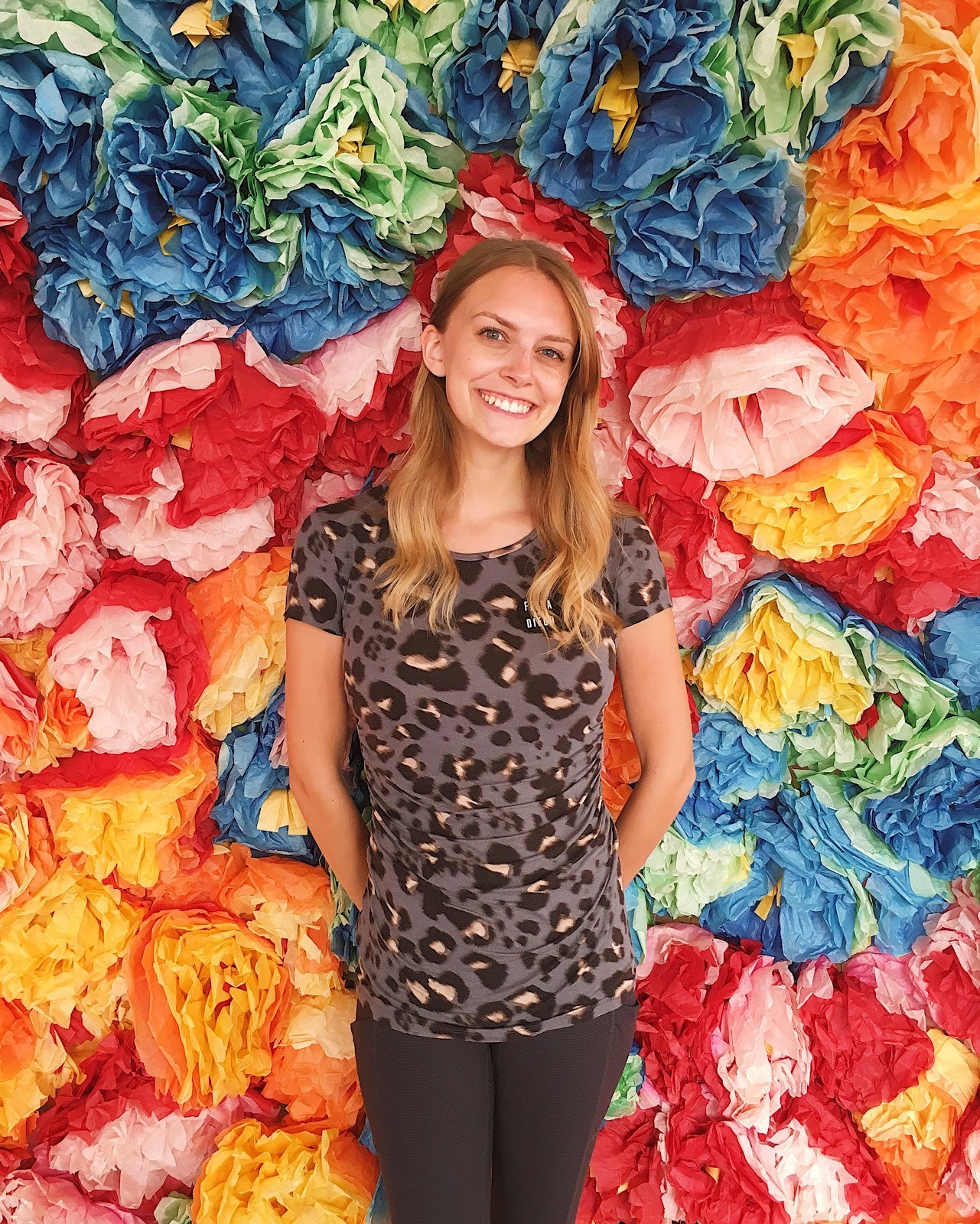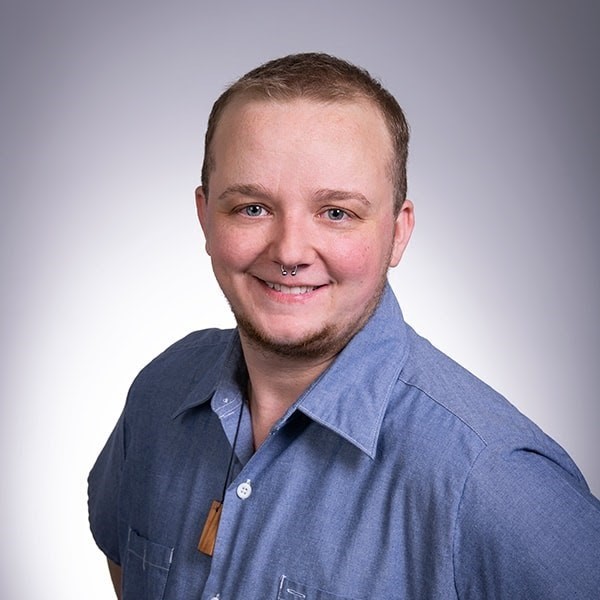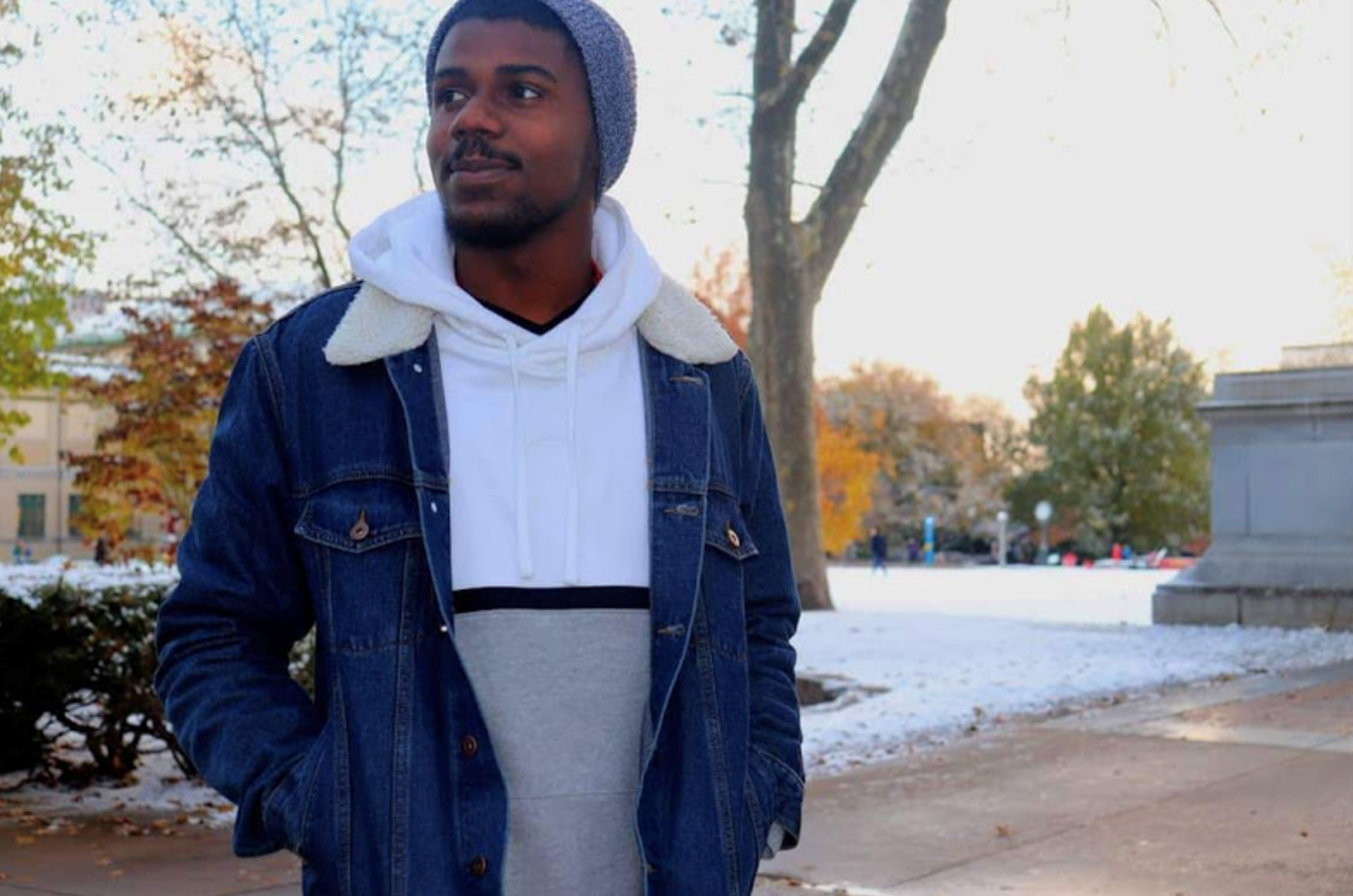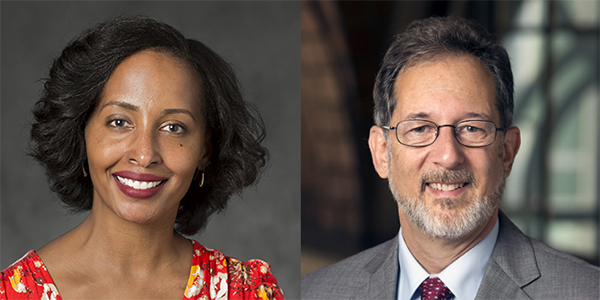The Garden: Volume Three
Uniquely Connected & Thriving Together at Dietrich College
In This Issue: A Message from Ayana Ledford and Dean Scheines | Planting the Seeds: Katelyn Bloomquist | Already Bloomed: A Conversation with Michelle Alexander | Gardeners of CMU: Noah Riley | Op-Ed: Thoughts About Carnegie Mellon PrideA Message from Ayana Ledford and Richard Scheines
Associate Dean for Community Impact and Educational Outreach, Dietrich College of Humanities and Social Sciences, and Bess Family Dean, Dietrich College of Humanities and Social Sciences
Welcome back! We hope you are excited for the new year, which brings new possibilities. Additionally, thank you for taking the time to read The Garden to learn about the many ways members in our community are committed to creating an environment where every staff, student, faculty, visitor and administrator feels and knows that they belong.
We count on every one of us to share in the responsibility of cultivating an inclusive environment. How we interact with each other through scholarship, community and practice all matter. This past year, a team of our community members donated their time to draft a strategic plan for the college. We need your help to prioritize the recommendations suggested by the committees. Please send an email to ledford@andrew.cmu.edu if you would like to participate in one of the following community feedback sessions for the draft plan hosted in the Dean’s Conference Room (BH 154R):
- Staff section: Friday, Jan. 24 from noon to 1 p.m. (lunch provided)
- Undergraduate student section: Wednesday, Feb. 5 from 4:30 to 5:30 p.m.
- Graduate student section: Tuesday, Feb. 11 from 4:30 to 5:30 p.m.
- Faculty section: Thursday, Feb. 27 from 4:30 to 5:50 p.m.
If you are unable to participate in one of these in-person facilitated discussions, feel free to email us directly to receive a copy of the document to review. There will be a large-scale community gathering to share highlights of this plan in late March. An email will be forthcoming once committees receive additional community input, and we confirm logistics. There are many miles to go, but these recommendations are concrete actions we can take to build a better community. In prioritizing and then implementing them, we can continue to make everyone's experiences at Dietrich College richer and more rewarding.
Planting the Seeds: Katelyn Bloomquist

Katelyn Bloomquist, an Arizona native studying behavioral economics and statistics, is planting the seeds of change at Carnegie Mellon.
She is the president and founding member of ABLE CMU, a club with two main objectives: social support and advocacy for Carnegie Mellon students with disabilities and chronic illnesses. On top of being in Alpha Phi Sorority and handling the academic rigor of double majoring, Bloomquist founded ABLE because it had personal meaning for her.
“My history with chronic illness is very confusing and all over the place,” she said. “After experiencing debilitating symptoms in sophomore year, I had to go home and figure out what was wrong.”
Upon her return to Carnegie Mellon, Bloomquist found herself feeling isolated. Despite best efforts, a lot of students with disabilities and chronic illnesses have a hard time: it is difficult for able-bodied individuals to relate, friends may not know how to provide support and the overall experience is difficult. This is where ABLE CMU comes in.
“I hoped that through this club, I could find other people like me, and that other people could find a community of students who could relate with what they are going through,” Bloomquist said.
This goal has definitely been met with the ever-growing presence of ABLE. After starting a successful postering campaign on Nov. 7 and creating a peer mentoring program, ABLE is directly advocating for students with disabilities and chronic illnesses. Bloomquist herself, however, has taken the fight to university administration as Carnegie Mellon has become more aware of the importance to commit to diversity, equity and inclusion.
“Chronic illness and disability has been left out of the conversation of diversity, equity and inclusion,” she said. “So I have been in meetings with committees and deans to talk about accommodations on campus and specifically in the classroom.”
Bloomquist and ABLE’s advocacy members hope that sparking conversations will dispel the many misconceptions about accommodation. Issues resulting from misconceptions disproportionately affect students with non-visible disabilities, such as learning disabilities, Bloomquist said.
ABLE’s advocacy also goes outside the classroom, and she hopes to bring more direct change on the greater campus.
“Down the road I would like to see actual changes on campus,” Bloomquist said. “For example, there are inaccessible, non-ADA compliant elevators in Doherty Hall.”
At the end of the day, Bloomquist and members of ABLE CMU want to make a significant impact on our community.
“I hope ABLE can help make disability a little bit more seen, especially learning disabilities, because they are so common,” Bloomquist said. “We should view them with more empathy and understanding.”
Learn more about ABLE CMU members, events and goals on the organization’s Facebook page.
Already Bloomed: A Conversation with Michelle Alexander
On Sept. 26, Michelle Alexander joined the Carnegie Mellon community for a moderated question and answer discussion on the state of race relations in America and injustices found within our legal system.
Alexander, a civil rights lawyer, advocate, and author of the New York Times and Washington Post best-selling book “The New Jim Crow,” joined Alfred Blumstein, a Heinz College faculty member, and Anthony Pratche, a Department of History postdoctoral fellow. Attendees, including many students, packed the McConomy Auditorium for the first event of the 2019–2020 University Lecture Series.

The event covered an array of topics, with a focus on the carceral state in the United States. The discussion started off with Blumstein posing a question with the presumed improvement in the ratio per capita of white and black prisoners: other than her book, are there explanations for the reduction of the ratio?
Alexander promptly unpacked the question, sharing her overall view of the mass incarceration system in the U.S. as a much larger, caste-like system. This system goes outside prisons and includes those on probation or parole, and those who, after being released from prison, are locked in a second-class status for life as a result of criminal convictions. The issue, she emphasized, is the sheer amount of people in prisons.
When pressed again for an answer from Blumstein, Alexander then discussed the new phenomenon of digital prisons, which consist of electronic monitors and home surveillance technologies.
“There may be a reduction in the number of people locked,” Alexander replied to Blumstein. “But there is an increase in people under state control.”
Despite the encouraging fact of decreasing racial disparities of people in prison, Alexander emphasized throughout the evening that her goal was to “eliminate the system itself.”
“I do not view any system that involves locking people in cages, treating them often worse than animals, and stripping them from their basic civil and human rights, as fair.”
With this in mind, the conversation shifted to the 10-year anniversary edition of “The New Jim Crow.” When asked about potential additions to the bestseller, Alexander discussed how the events between 2009 and today could easily be “an entirely new book.” However, she shared one issue in the original release that has since been addressed: language.
“Terms like ‘ex-offender,’ ‘inmate’ and ‘prisoner’ have been challenged by formerly incarcerated people,” Alexander said. “You can’t label them with that as if that label is their entire identity. You need to center on people’s humanity.”
The question and answer event ended on a more contemporary discussion about politics and race.
“Today we see so many examples of white people hurting themselves by their own racism,” Alexander stated. “The election of Donald Trump, stances on health care, and the general punitive orientation against the poor and people of color are a few examples.”
Gardeners of CMU: Noah Riley

Noah Riley, a health promotion specialist at Carnegie Mellon’s University Health Services (UHS), has been an advocate and ardent organizer for Carnegie Mellon’s LGBTQ+ community for three years. A co-advisor to PRISM, Carnegie Mellon’s undergraduate gender and sexuality alliance (GSA) organization, Riley believes community is formed and maintained through forging relationships between groups on campus.
A significant aspect of Riley’s activism is addressing health disparities and issues that affect LGBTQ+ individuals. As the health promotion specialist at UHS, Riley provides numerous resources for the Carnegie Mellon community, including the Peer Health Advocates program. Furthermore, he organizes the on-campus intervention program, Green Dot, in which students can learn ways to address power-based personal violence as a bystander.
Riley recognizes there are pockets of trans activism on campus, and aims to centralize them, as well as hold the university accountable for issues such as the lack of sufficient gender-inclusive restrooms throughout campus. Over these past two semesters, Riley has been meticulous yet eager in organizing graduate students to spearhead efforts to better support trans, non-binary and intersex people at Carnegie Mellon. Riley, along with CMQ+ (graduate GSA) and PRISM, has been leading the conversation about advocacy for transgender people.
Since the spring 2019 semester, Riley and CMQ+ organized TINA, which stands for transgender, intersex and nonbinary advocacy. The group, with members including Carnegie Mellon staff, faculty and students, collect information through anecdotes. This information, in turn, offered insight into ways Carnegie Mellon can better advocate for transgender, intersex and nonbinary people. The method chosen by Riley and organizers also poses a foundation in which graduate students, staff and faculty can begin important conversations about trans advocacy where support has been previously lacking.
A culmination of Riley’s work within the graduate and undergraduate communities are the “Making Way: Actionable Steps for All-Gender Inclusion” workshops on Feb. 13. Presented by Jaime Grant, there will be two separate sessions: one for staff and faculty from 2 to 3:30 p.m. in Danforth Conference Room (Cohon University Center), and one for the entire Carnegie Mellon community from 5 to 7 p.m. in Simmons Auditorium A (Tepper Quadrangle). A reception in Simmons Auditorium will follow the staff and faculty session. These workshops will focus on transgender advocacy and rights, as well as addressing the disparities within higher education in relation to gender. Tickets can be obtained online, and any questions can be sent to nriley@andrew.cmu.edu.
Op-Ed: Thoughts About Carnegie Mellon Pride

Writing this, I’m already a second-semester freshman, and I’ve seen some interesting things play out in the society of Carnegie Mellon University. Right off the bat, I recognized a really fascinating dynamic in the freshman class. A lot of our students seem to mold their personalities into their idea of where they aspire to be — something I have never seen in my hometown of St. Louis. And I assume that this is particular to university culture, because the same thing has happened to me. Lots of my friends, not all, already have their majors decided — majors from every college on campus — and they speak and act as if they were a world-class violinist or a diplomat.
Now, this is not necessarily a bad thing. Carnegie Mellon is a highly prestigious school. People who can say they are a part of this society have a lot to be proud of, and oftentimes, you can see it pinned on someone's backpack. With this pride, this institution becomes a part of the identity, and specific behaviors follow suit. I see this, and I wondered what others thought. I casually ask friends, “How has CMU become part of your identity?” Most commonly, I hear, “It isn’t,” because the person resents it for some reason. Most notably, one of my friends has told me that he “... wanted to make his family proud,” and so, he doesn't “... have a choice.” I went about my day with that in my ear in awe.
Of course, all people are different and act in different ways. Me, myself, am an international relations and politics major, and I see myself act and do more things international relations related. This is who I am now, so I follow BBC on Twitter. I am a student at Carnegie Mellon. This means something to me, so I buy a $40 thermos from the bookstore. In high school, I worked hard to get here, and I know that I have to finish with a master’s degree, and go home and support my family.
Knowing all of this, of course I am going to wear a button on my backpack. I just really want to know why the others do, too. We all have stories to tell.
Nicholas Murphy is a first-year student studying international relations and politics. He is starting a photojournalism project called “Humans of Dietrich College.” All Dietrich students, grad or undergrad, as well as staff, are encouraged to contact Murphy at nkmurphy@andrew.cmu.edu.
